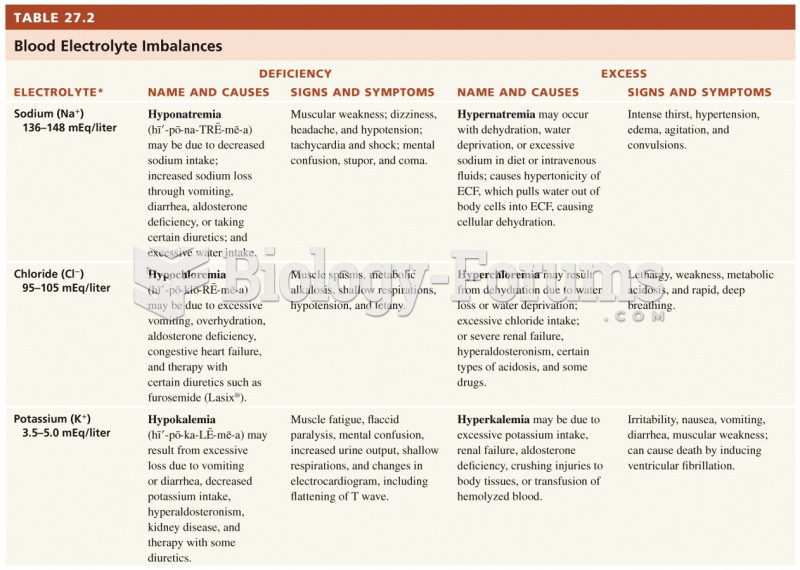|
|
|
Certain rare plants containing cyanide include apricot pits and a type of potato called cassava. Fortunately, only chronic or massive ingestion of any of these plants can lead to serious poisoning.
According to the Migraine Research Foundation, migraines are the third most prevalent illness in the world. Women are most affected (18%), followed by children of both sexes (10%), and men (6%).
According to the FDA, adverse drug events harmed or killed approximately 1,200,000 people in the United States in the year 2015.
More than nineteen million Americans carry the factor V gene that causes blood clots, pulmonary embolism, and heart disease.
After 5 years of being diagnosed with rheumatoid arthritis, one every three patients will no longer be able to work.







